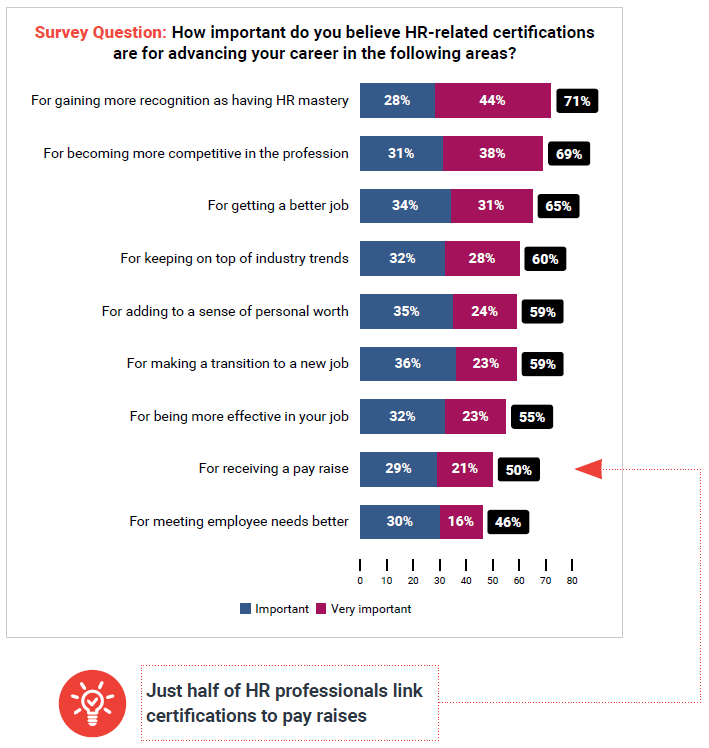Most responding HR professionals have one or more certifications
More than half (60%) of HR professionals have at least one Hr-related certification. Among those who say they have at least one certification, the most commonly acquired certifications are the Professional in Human Resource Management (PHR), which is offered by the HR Certification Institute (HRCI), and the Certified HR Professional (SHRM-CP) certification, offered by the Society for Human Resource Management. Forty percent have the SHRM-CP and 35% have the PHR.
In many cases, HR professionals have more than one certification. Among those with a PHR certification, for example, 52% also have the SHRM-CP certification and 9% have the Senior Professional in Human Resources certification.
Both the HR Certification Institute (HRCI) and the Society for Human Resource Management (SHRM) offer additional certifications, the most common of which are HRCI’s Senior Professional in Human Resources certification and SHRM’s Senior Certified Professional certification, both of which are targeted at higher HR levels and deal with more strategic HR topics. There are various other HR certifications as well, some focused on sub-specialties such as compensation, benefits or international HR.
While it is not essential to have an HR certification (after all, 40% of HR professionals do not have one), our research suggests it is becoming common. In some cases, certification may become a differentiator that organizations consider when making a job offer.
Gaining recognition for HR mastery tops the list of reasons for acquiring Hrrelated certifications
We asked respondents to indicate the possible benefits of certifications for advancing their careers. “Gaining recognition for having HR mastery” is the most widely cited (71%) as an important or very important benefit. This is followed closely by “becoming more competitive in the profession,” cited by 69%.
Although these are the most widely cited, they are far from the only reasons for gaining a certification. The other reasons most widely seen as important are:
· getting a better job or making a transition to a new one
· staying on top of industry trends
· adding a sense of personal worth
It is interesting to note that the two areas seen as least important are “being more effective in your job” (55%) and “better meeting employee needs (46%).” Although these are still sizeable percentages, these findings suggest that certifications are more commonly viewed as important for external validation than for actually doing HR management more effectively.
Our study lends support to another comprehensive study that confirmed the importance of certain types of HR certifications to both increased compensation and probability of a promotion.


